Following our latest insight brief on the experiences of disabled students, Head of Student Equality and Welfare, Suzanne Carrie, hears from members of our advisory panel on what they think the sector needs to take from this report and work on.
The higher education experience of disabled students has long been a focus for the Office for Students, particularly as it has been persistently poor compared to their non-disabled peers.
In October we published a new insight brief setting out a range of evidence about their experiences. This draws upon the 2025 National Student Survey results (also the subject of an OfS blog highlighting the gap between the reported experiences of disabled students and other students), and the views of our Disability in Higher Education Advisory Panel which was established in 2023.
So, what do members of the Disability in Higher Education Advisory Panel want universities and colleges to take from this latest insight brief?
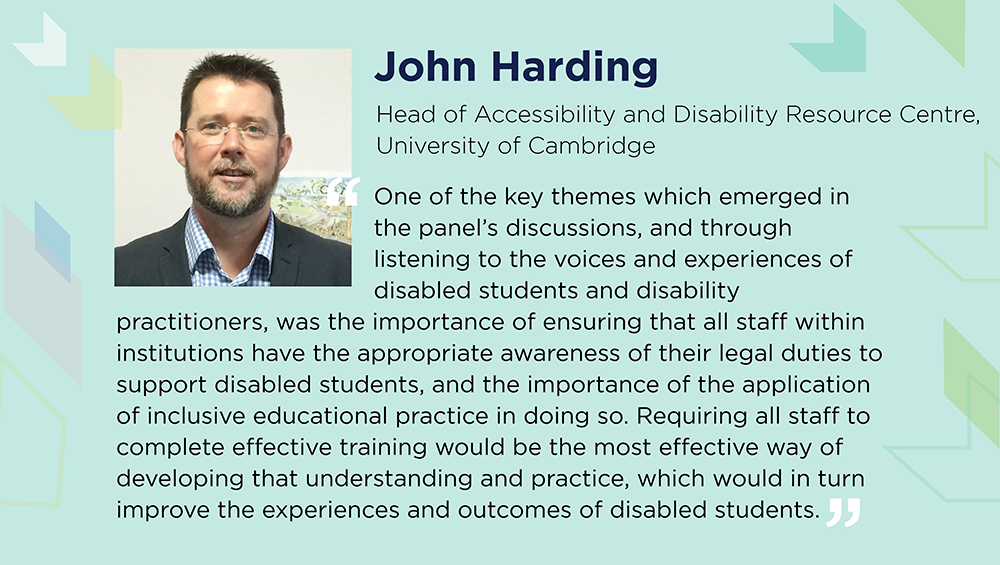
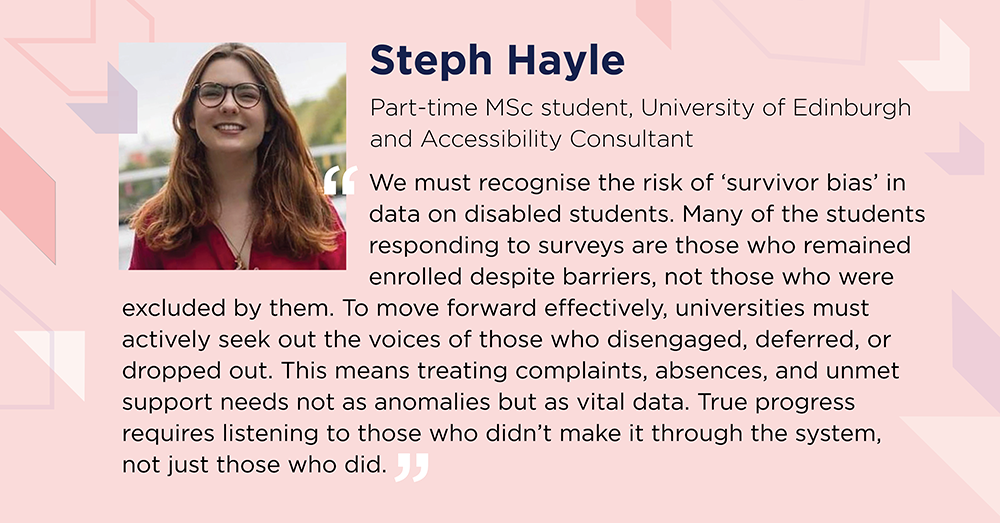
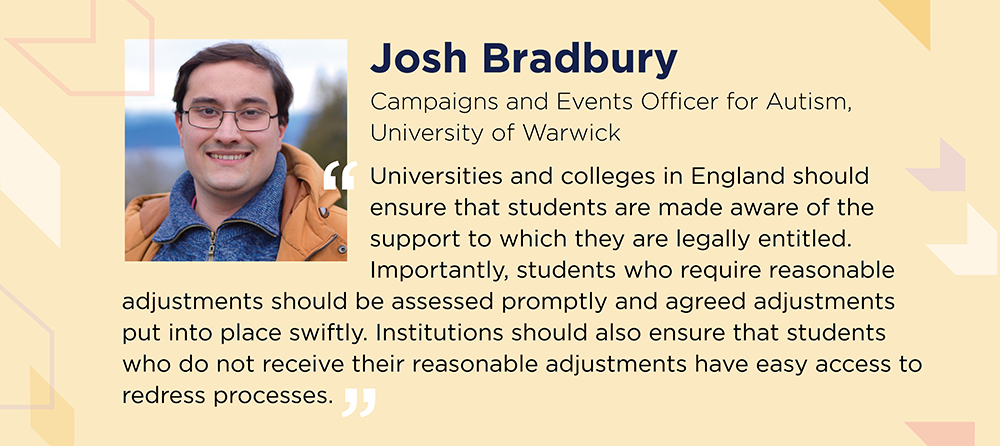
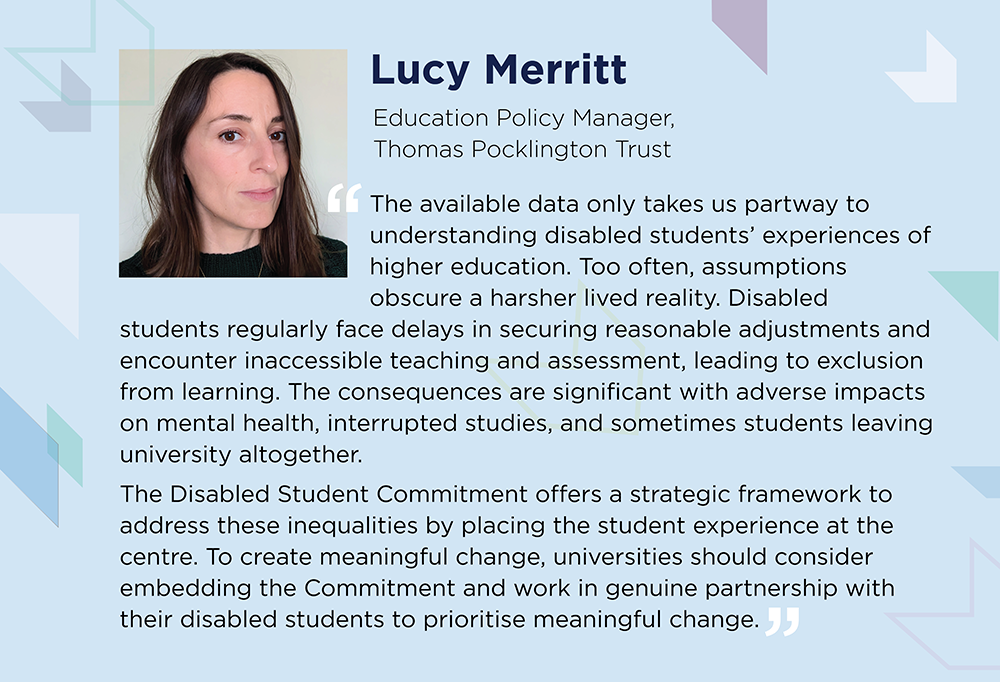
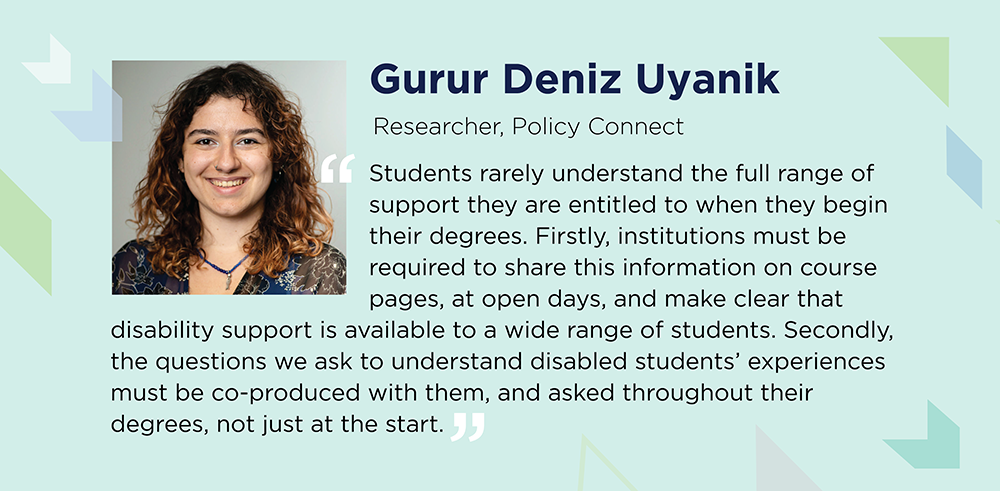
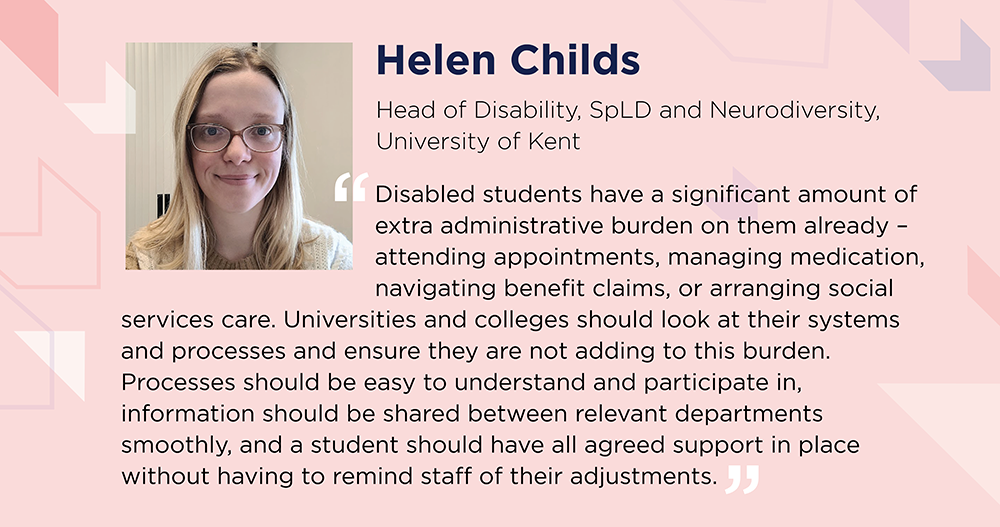
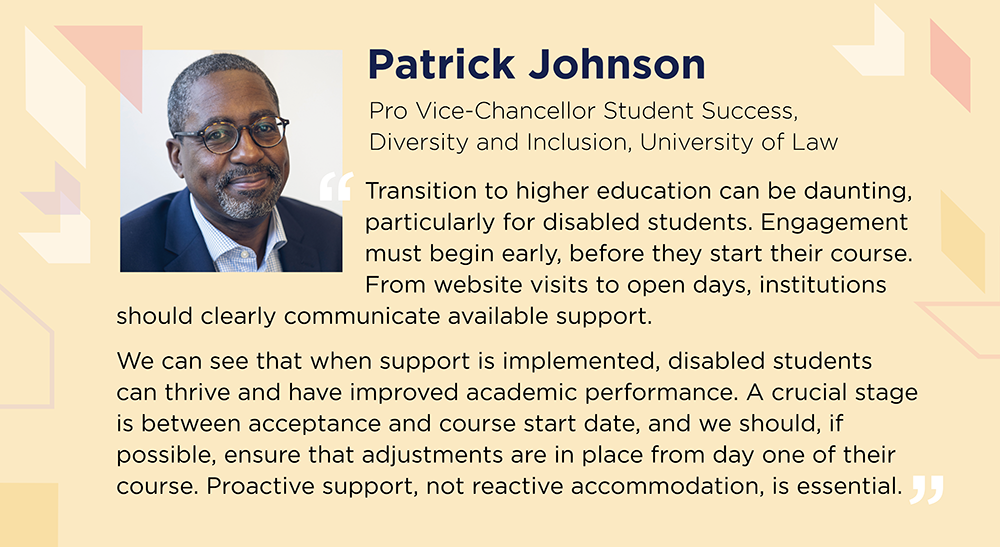
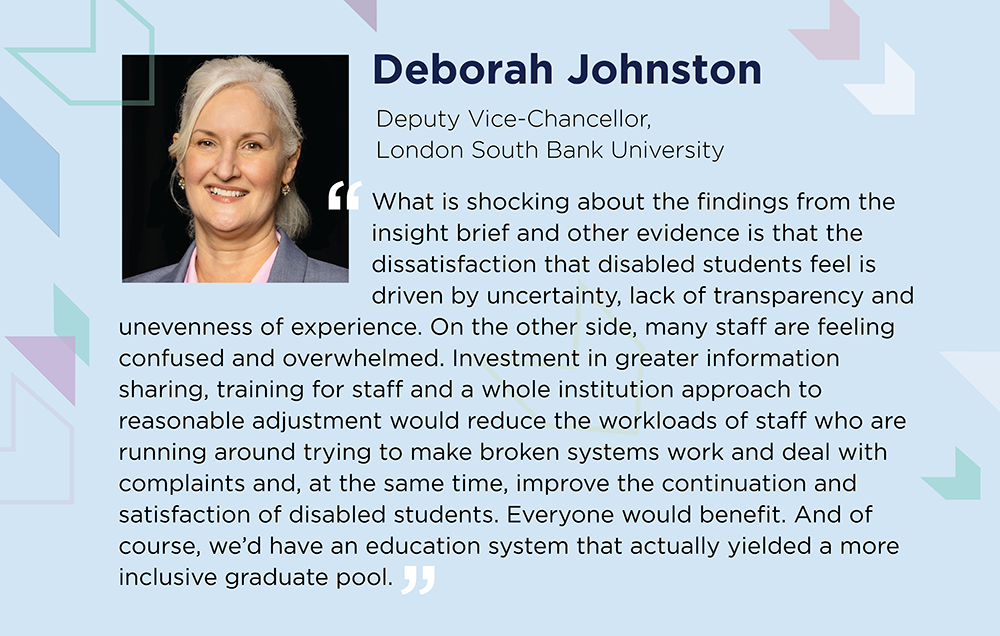
In summary
We encourage universities and colleges to read the insight brief, reflect on the points made by our panel members here, and consider what could be applied locally. This process might begin with interrogating institutional data, involving disabled students in developing approaches and support, and considering the way that policies, processes and practice impact disabled students.
The higher education sector is currently having to address challenges on many fronts, but universities and colleges still need to remember their ongoing legal responsibilities towards disabled students and their right to equitable access and opportunity in higher education.
It’s important to say that progress is being made. During research for our insight brief, we’ve also learned of steps being taken by institutions, and thoughtful policy development promoting a positive environment for disabled students.
We welcome these initiatives and encourage institutions to learn from each other so that their disabled students will come to regard their higher education in the same way as their peers.
Support and resources
In this video, the Advisory Panel members talk about the support you can expect at university or college as a disabled student.

Comments
Report this comment
Are you sure you wish to report this comment?